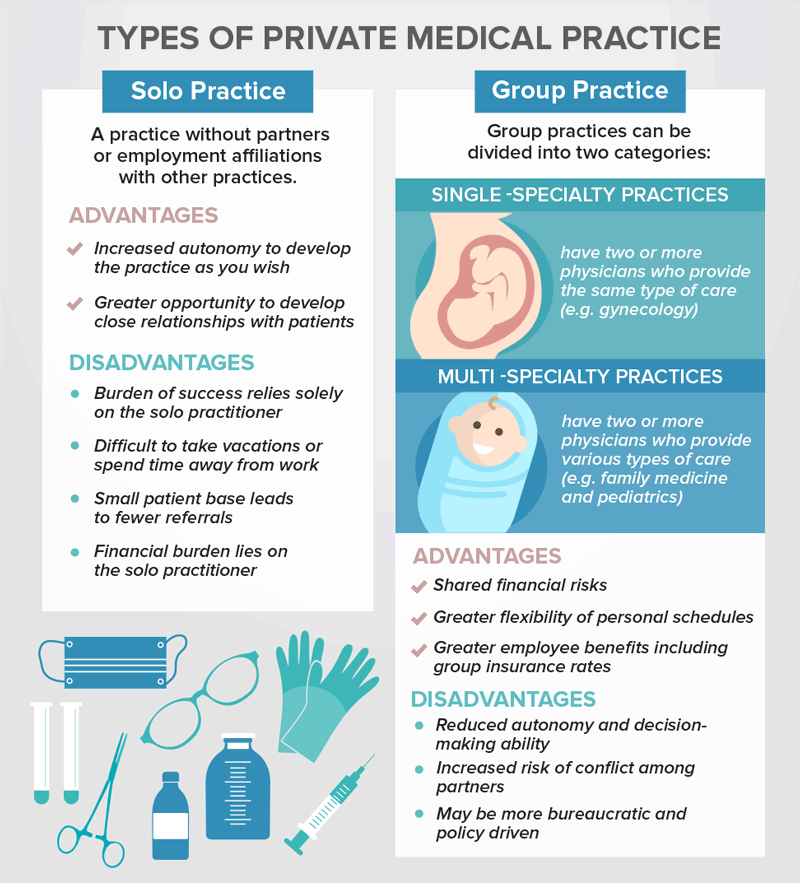
The healthcare industry is booming. As technology has improved and become more widely available, many companies are moving into healthcare or healthcare-adjacent fields, driven by entrepreneurs who see the value of this emerging market. This means healthcare companies are experiencing an unprecedented level of competition. Many are starting to recognize the role of the entrepreneur in healthcare and embrace their entrepreneurial education, habits and knowledge for survival.
The Ways Healthcare Entrepreneurship Is Growing
Going into the future, it appears that entrepreneurship and healthcare are linked and will continue to be connected for some time. Here are the three primary ways the two are connected, and why it matters.
Business Practices Drive the Industry
One of the biggest ways entrepreneurship and healthcare are related is that business practices are driving the industry. Healthcare MBAs and other healthcare professionals are using business concepts to get ahead, which is disrupting traditional healthcare. Market incentives are pushing experienced entrepreneurs and investors into the healthcare industry, and they are finding a welcome market, open to new ideas and technologies.
At the same time, healthcare is becoming less directed and more open as the industry embraces a patients-as-consumers mindset. Healthcare providers have to respond by marketing services — something that was virtually unheard of in the past.
New Payment Models Reward Value
Traditional clinical models, like the fee-for-service model employed over recent decades that generate revenue based on how many patients are seen, are rapidly disappearing. New population management models reward healthcare providers for keeping patients healthy, as opposed to allowing them to make money only from sick people.
Changing this focus changes the scope of treatment. Now, preventing illness is key, and avoiding unnecessary treatment is the rule. Entrepreneurs in healthcare are using this shift to introduce health-preserving measures, techniques, systems and novelties, like wearable technologies and fitness apps. This creates a universe of highly profitable products and services adjacent to healthcare that are not under the sole direction of medical professionals, health insurance companies or treatment centers.
Technology Moves Modern Healthcare
Technology is changing modern healthcare. Entrepreneurial-minded healthcare professionals are applying predictive data and analytical tools to anticipate healthcare needs in a community, ensure care is adequate and necessary, and make statistical predictions about the care that will be required next. They are also exposing and correcting inefficiencies in traditional healthcare and making new models based on what works.
Technologies used as decision-making tools are also gaining bigger roles in the healthcare industry, be it wearable technology that documents patient experiences or websites that allow patients to access their own lab work. There is also the need for integrated data solutions. Now that so much data is available about patient histories, lab work, hereditary issues, and treatment successes, a systematic solution to support decision-making is practically required.
Entrepreneurship and healthcare are linked, and the bonds between the two are growing deeper as business practices drive the healthcare industry into a wellness industry. In turn, value-oriented payment models reward that focus and technology perpetuates the cycle. In the end, entrepreneurship is moving healthcare forward, and the industry has to evolve to keep pace.
Types of Healthcare Entrepreneurship
The different types of healthcare entrepreneurship are commonly split into two groups — solo practice and group practice.
Solo Practice
A solo practice is a practice without partners or any type of employment affiliation with an outside practice. The advantages to this type of practice include increased autonomy for practice development and a greater chance to build a closer rapport with patients. The challenges to solo practice include a greater individualized burden for both professional and financial success, difficulties stepping away from work and fewer referrals.
Group Practice
Group practices can be divided into two practice categories. The first is single-specialty practices, which have two or more physicians who provide the same type of care, such as gynecology or podiatry, and multispecialty practices that provide various types of care, like family medicine and pediatrics. Regardless of category, group practices share several advantages such as shared financial risks, greater flexibility of personal schedules, and greater employee benefits like group insurance rates. There are also several disadvantages, including reduced autonomy and decision-making ability, increased risk of conflict among partners, and increased risk of being more bureaucratic and policy-driven.
These groups offer healthcare entrepreneurs the opportunity to establish care delivery services built around specific aspects or concepts of care. These can include:
- Home healthcare services
- Rehabilitation centers
- Physical therapy centers
- Diabetic care centers

